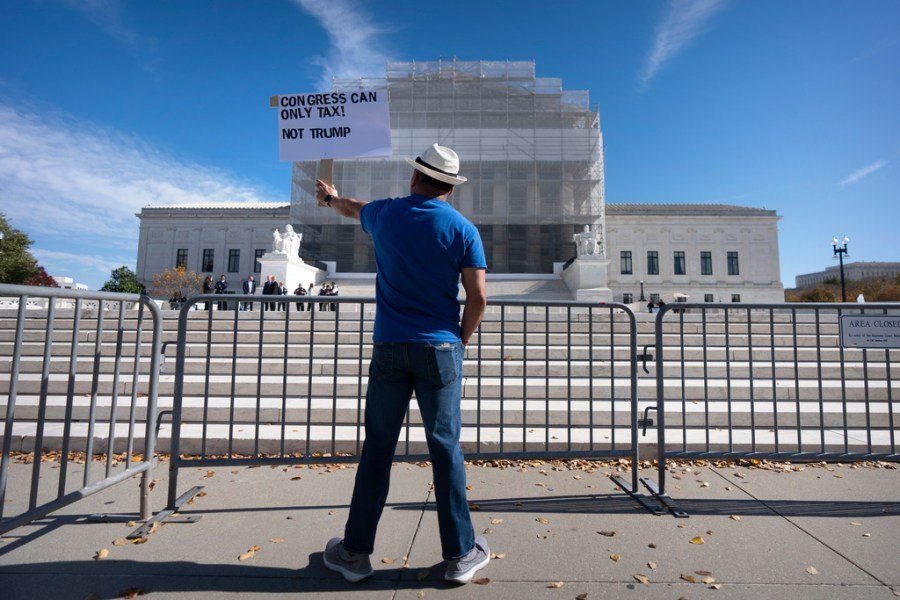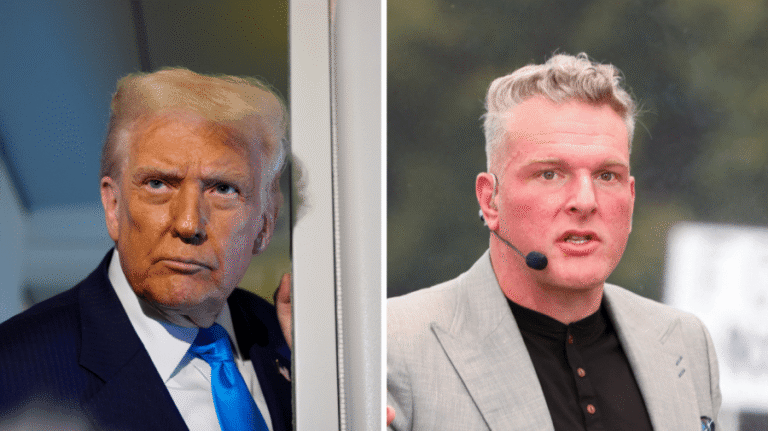
It’s never a good idea to treat U.S. Supreme Court justices as if they’re fools. And yet U.S. Solicitor General D. John Sauer, in his Nov. 5 defense of President Trump’s tariff authority, came very close.
Lawyers are sometimes called on to defend the indefensible. And those who refuse to do so may step down or are sometimes fired, as were federal attorneys who did not believe they had enough evidence to bring a case against certain Trump enemies.
Sauer may have done the best he could putting lipstick on the pig that is Trump’s tariffs — but it’s still a pig.
The most ludicrous aspect of Sauer’s Supreme Court argument was his claim that federal revenue from Trump’s tariffs was “incidental.” Sauer claimed Trump was just exercising his constitutional power to manage foreign policy, not raising federal revenue. According to Sauer, “These are regulatory tariffs, they are not revenue-raising tariffs. The fact that they raise revenue is only incidental.”
The problem with Sauer’s claim is that the president and his advisors have repeatedly cited increased federal revenue as one of the reasons for imposing tariffs.
Take, for example, Trump’s inaugural address on Jan. 20. In the speech Trump said, “I will immediately begin the overhaul of our trade system to protect American workers and families. Instead of taxing our citizens to enrich other countries, we will tariff and tax foreign countries to enrich our citizens.”
Does that sound like federal revenue from tariffs was a byproduct of Trump’s plan?
Trump went on to explain, “For this purpose, we are establishing the External Revenue Service to collect all tariffs, duties, and revenues. It will be massive amounts of money pouring into our Treasury, coming from foreign sources.”
Of course, as almost everyone but Trump understands, U.S. companies and individuals pay those tariffs, not foreign countries. In other words, Trump is raising taxes on Americans.
No one can honestly claim that federal revenue from tariffs is incidental. The justices know it, Trump knows it, and Sauer knows it, even if he says otherwise.
So why did the solicitor general of the United States make a demonstrably false claim to the Supreme Court? To get around the clear text of the U.S. Constitution.
Article I of the Constitution vests in Congress the power to tax — and tariffs are taxes. That was intentional. If taxes were going to be imposed on Americans, the founders wanted the people’s elected representatives to make that decision, not one person.
Over the years, Congress has given the president, in his role as the one managing foreign policy, the authority to impose tariffs for a limited time on specific items for a stated purpose — after declaring a national emergency. And most presidents have generally stayed within those boundaries, as President Ronald Reagan did in 1987. But not Trump.
The justices were very respectful to a man who they knew was trying to deceive, or at best confuse, them. Though it was clear the justices weren’t buying the argument, some were struggling with how to balance the president’s power to conduct foreign policy with the possible need for tariffs as one tool.
How will it turn out? Given their perceived skepticism, there’s a very good chance the justices will rule that many of Trump’s tariffs are unconstitutional. They could take a narrow approach and rule the law Trump says gives him the authority to impose widespread tariffs at will — the International Emergency Economic Powers Act of 1977 — doesn’t grant him that power. That would mean tariffs imposed under that law are unconstitutional.
Even so, the expectation is that some of Trump’s imposed tariffs are allowed under current law — for example, Section 232 of Trade Expansion Act of 1962 — and so the court may leave them in place.
However, Team Trump has made it clear that if it loses in court, Trump will just claim the power under another law, thus reigniting the whole judicial process again. That’s how a president thumbs his nose at the Supreme Court and does what he wants.
You may recall that President Joe Biden did something similar when the Supreme Court ruled he did not have the authority to forgive all student debt, to the tune of some $430 billion. An alternative approach was referred to as “Plan B,” which Biden implemented. Republicans strongly criticized Biden for defying the justices. We’ll see if they are just as critical of Trump.
After striking down many of Trump’s current tariffs, the Supreme Court could deliver a broader ruling, outlining what powers the president does and does not have with respect to imposing tariffs. That would be the best way to resolve the issue so that the economy and trade policy can stabilize and taxpayers can be spared paying ever more tariffs.
Merrill Matthews is a co-author of “On the Edge: America Faces the Entitlements Cliff.”

